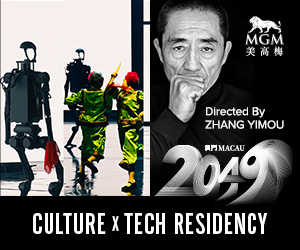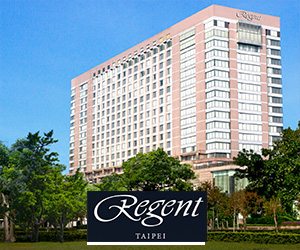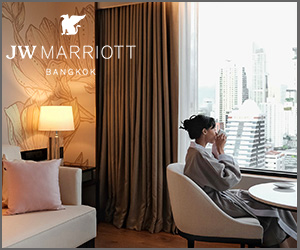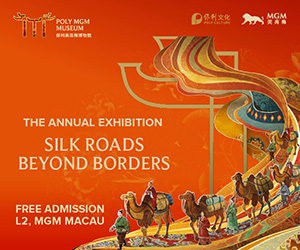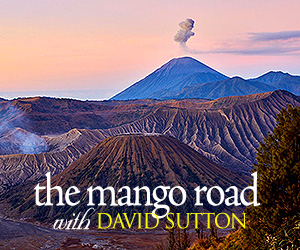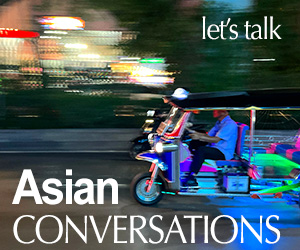|
OPINION One man's poison...
JUMP TO Previous columns 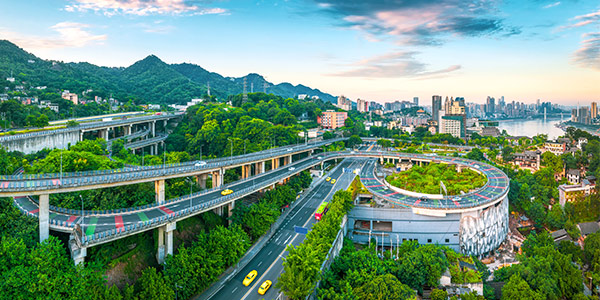
New tier-2 destinations like Chongqing (pictured), Hampi, Bodhgaya, Kanchanaburi and Lampang, are gaining visibility as domestic tourism increases in Asian countries and long-haul business and leisure travel to the US declines. AS the headstrong Year of Horse arrives, it seems 2026 is set to be a tumultuous time for travellers. The Great US Immigration Firewall has come up, visas are scarce, shooting incidents are rising (with viral amplification on social media) and tariff irritations are inciting national passions from Canada to China. In a very short span of time the American administration has inadvertently wrought one of the biggest redirects in travel the world has ever seen since Moses parted the Red Sea. Chinese consumers, known for their en bloc hair-trigger responses whenever an irksome issue arises, are already getting off the transpacific highway, shunning America for affordable pastures closer home in Southeast Asia. This is true of quite a few countries that have seen their self-esteem and currencies battered in politically uncertain waters — ironically as the ‘safe haven’ dollar strengthens, further crimping US-bound travel. 
The main beneficiaries of this new travel surge have been Thailand, Malaysia, Japan (with an attractively weak yen), South Korea and Vietnam. Thailand has lost regional tourists with a rising baht and much bad press regarding sweat-shop labour tourist kidnappings and Cambodia border skirmishes but Chinese tourists promise to pack flights again as Spring 2026 bookings come in. Tourists from USA too have picked up in Thailand, Vietnam, Singapore and Japan. Suddenly, looking east has become ever more attractive, especially for long-haul markets like Europe keen on budget-friendly destinations and long stays over the winter months. Send us your Feedback / Letter to the Editor India — with continuing infrastructure and safety issues — has not gained much from this tourism windfall but Indian travellers have turned to the Far East with a vengeance, nursing their weakening rupee and stretching value in regional destinations like Thailand, Malaysia, Bali and Vietnam. Singapore too has seen an uptick in Indian travellers who rank third on the island’s foreign arrivals chart after Indonesia and China. Indian domestic tourism has seen a sharp climb too with a more urgent exploration of the south and the northeast. {"In a short span of time the US administration has wrought one of the biggest redirects in travel the world has seen since Moses parted the Red Sea.... In much of Asia, international political uncertainty and travel barriers have translated into vibrant self-discovery. Domestic travel has soared in countries from China to Thailand and India, with fresh interest in tier-2 and tier-3 cities that offer better value and fewer crowds. Savvy international travellers too are riding on the back of these currents to places like the historical city of Nanjing, and Chongqing (the astounding multi-level highway metropolis in the western mountains) in China. In India, think Jaisalmer in the Rajasthan desert, the astounding UNESCO World Heritage ruins of Hampi, spotless Shillong in the Himalayas, Ayodhya, and Bodhgaya (where Buddha is said to have attained enlightenment). And in Thailand, Kanchanaburi’s night market continues to enthral while the sedate northern old-world Lampang offers a counterpoint to frenetic tick-all-the-boxes travel. The rapid rise of Asian budget airlines like Vietjet, Air Asia, HK Express, IndiGo, Scoot and Cebu Pacific have brought remote romance within easier reach of city folk who have welcomed the chance to slurp street noodles and snap golden sunsets from Phuket and Palawan to Phu Quoc. This has been cautiously welcomed by several countries, notably Thailand and Indonesia that have eased visa regulations for several nationals including Indians who marvel at familiar cultural practices as seen through the SE Asian funny mirror, nowhere more pronounced than in isolated Bali with its idiosyncratic brand of Hinduism. Hongkongers continue to favour Japan and Taiwan and many have taken advantage of the direct highspeed rail connections into the heart of China. Travel is turning regional. International business travel is changing direction too. Rising US tariffs and other concerns have forced businesses to seek risk-mitigation opportunities in Asian markets with more stable regimes that could help resolve supply-chain gaps. A mid-2025 poll by CNBC found, almost 80% of the 6,000 Southeast Asian travellers felt the US was “losing its appeal as a travel destination.” Respondents were concerned about discrimination (60%), gun violence (53%), border detentions (37%), and the “Trump administration”. Many other nationalities had a similar disposition. Despite the general unease, the Philippines and Vietnam both registered an increase in travel interest to the United States. Unsurprisingly, the World Travel and Tourism Council estimates the US is “set to lose US$12.5bn” in tourism over 2025. The council tellingly concluded: “The US, the largest Travel & Tourism sector in the world, is the only country among 184 economies analysed by WTTC and Oxford Economics, forecast to see international visitor spending decline in 2025.” But then, one man’s poison is another man’s meat. As the world puzzles over new terms like ‘slow travel’ (exactly as it sounds), ‘hushpitality’ (quiet escapes), and ‘flashpacking’ (high end backpacking in designer hostels); rail travel — where you actually engage with the passing landscape and people rather than fly over it — may be the next big thing. The late Tiziano Terzani penned it eloquently in his 1997 book, “A fortune teller told me”. As he wrote of his earthbound travels over a year (to avoid a monk’s dark prophecy): “What looked like a curse proved to be a blessing. Moving between Asia and Europe by train, by ship, by car and sometimes even on foot, the rhythm of my days changed completely. Distances became real again, and I reacquired the taste of discovery and adventure.” Send us your Feedback / Letter to the Editor Previous Columns2026 2025 Influencer influenzaGM in the LobbyLiver Ice-creamCliffhanger pollHidden HotelsBrand ShootoutSearch AlternativesTravel Risk MapsPrivate jet dealsStarry, starry nightHK OutdoorsDelhi guesthouse
2024 What a FeelingWhat ails aircraft engines?No-Brand hotels arriveCan Blue Zones extend life?Can Cathay lift off?Wheelchair delaysAirport duty-freeNew Bangkok hotelsGreenwashing and youRe-selling Hong KongDelhi surprise
2023 Predictions and missesLimits to tourism?White Manager's BurdenIt's a mad world - your voteWhat's bugging travellers now?Please introduce the brideBest Bangkok skybarsReselling Hong KongHotel soft openingsWill AI Chatbots change travel?Smart Travel Asia turns 20Maharajah magic or mega mess?
2022 Christmas sales callsFree HK ticketsGive me a DowngradeSex, Lies, VideoNew 2022 hotelsTravel to save the planetMay the sales force be with youWhere has all the service gonePerils of vanishing airspaceThree's a crowd, but four?Catch a falling avatarLeaving on a jet plane
2021 Bottom of an HK mysteryAir India flies homeWhy all roads lead homeBitcoin travelSpace Tourism for who?Rise of the killer botsVexxing anti-vaxxersCurse of curationMyanmar travel dilemmaExploding aircraft enginesBooks - travels in the mindPlanes, trains, automobiles
2020 Return of the flying SupermenWill airline bailouts flyThe Best of the DecadeWho will save Asia's hotels?Why we need more spaceWhy Covid is a big dealWho will give the first hug?Life of I, with a PumaThe world will be as oneWhy flu is nothing to sneeze atPlaying chicken in TaipeiSecret of powerless flight
2019 Broken bonds, dying brandsLately, the strangest feelingHow safe our skies?Is Hong Kong safe?Death of loyaltyNo rest on EverestBoeing fix leaves it in a fixCathay tries the limbo rockB737 MAX-8: accident by designI'm looking through youEveryone can auditionWhy is everyone screaming?
2018 The Sleep/Service equationThe Disappearing GMEco travel: less is moreBest of the restHow to win an awardPlane truth about punctualitySweet summer sweatWho's Top Dog?Don't unpack my bagPicture perfect holidaysTale of two women, or threeSomething in the air
2017 Hello, any humans here?An Aye for an AyeTravel, the fear factorHow to turn blue seas greenPolls, planes, queuesBlockade by blockheadsShanghai, back to the futureNo lap dance aloftFriendship is a rocketWhy I really need a dateIn the ICU with Legionnaires
2016 Give Bangalore its dueRoom at the VPN?How big can be beautifulWhy it's brand on the run Premeditation and physics Samsonite in a snit Bogged down by blogsRight brain has the right stuffWho's the fairest of them all?How have you been lately?Got a Black Magic Woman The rebranding of Asia
2015 Smoke gets in your eyesThe devil beaters of Hong KongThe lure of InstafameYes, still number oneStill tripping up onlineBetter late than neverCan you read bar codes?Domo arigato misuta robotoFast and furious - 2Terminal Man – the true storyHow bad ads kill good onesA matter of time
2014 Are you kidding me?Time to face the factsThe decline of reclineArt of hitchhikingShot out of the skyLies and statisticsBottoms up for goldShanghai surpriseNow, fake festivalsWhy ghetto is goodFrequently flummoxed flyersLaughing to the exits
2013 A matter of prideSpeak and it shall be understoodLet's go phishingAsia's best travel brandsBad scrambled eggsHow to pick a happy flightThe Wild Waist aloftClicks come a clatteringBrand on the runThe unfair fares affairSafe on cloud nine?Man-eaters of Mumbai
2012 The fine art of goodbyeStay fit or fake itMore than wordsWhy hotels and pigs can’t flyTo B or not to B737Are you being hacked?Snap-happy hounds bewareDelhi daze in springtimeLet's celebrate with KittyHide your prying eyesPilot project for beginnersGreen flights of fancy?
2011 The art of arriving lateWhen life drives you pottyAirports, awards, and alarmA fright for sore eyesDry skin wet eyesBack to the Tunnel of LoveWhy fearless flyers won't flee feesMore wind in the hairTravel tremors after JapanThe case of the intact bagsEnd of the OTA-man empire?A picture says a thousand words
2010 Only Engrish spoken hereVoices in the skyA tale of three airportsWhat's in a brandA big bite of a bad AppleNow haste to the hustingsJust 400 homicides and all's wellNo sex please, we're BritishSome minor details aloftHighway to the heavensYou look radiant darlingGood info a needle in a haystack
2009 Please watch that safety drillA classic cycle folderolUtterly eggcentric behaviourThe price is rightFlashing in public is a crime[Offset] my kingdom for a horseYour cash or I'll sneezeThe greening of the worldDo broccoli need passports?Could I see your profile?Great Scott! Empty seatsTravel in an age of terror
2008 There is no free lunchAnother Night in BangkokBeatings on the beachTravelling with Teenage KidsWhither Wi-Fi at 30,000ft?Are you locked in the toilet?Charge of the Flight BrigadeAcross the UniverseBaby it's cold outsideWhy I'm dying to travelA key questionGorillas in the mist
2007 Confounding customsWhen blackmail worksBy taxi through AsiaA really cheap dateMake a meal of itTales of two teethPutting curbs on carbsDial R for rip-offThe New Math aloftWhy boutique is bestAre you terminally mad?Heavy question, ladies
2006 The secret of good sleepJust bring Pluto backA fluid situation aloftWhy Friday's the bestNothing but the truthGone in 60 secondsJust use your imaginationFree flights for allIs your travel in vein?Pet peeves and solutionsViral travellers welcomeYes it's safe to step out
2005 A passage to IndiaIt is a "brand" new AsiaThe show must go onCriminally good holidaysThe accidental touristIt's a free rideSleep tips for the roadI'll follow the sunA good pillow fightA bridge too far?World's safest spotsThe need for speed
2004 Small is beautiful, sometimesBumming around AsiaSamsonite and DelilahJust one good bookSpace, the final frontierExtreme Travel for Real MenJust grin and bare itUnfazed by phraseHoney, I Shrunk My BrainMiss World to the RescueWhen things go bumpTo catch a croc, in Hongkong
2003
NOTE: Telephone and fax numbers, e-mails, website addresses, rates and other details may change or get dated. Please check with your dealer/agent/service-provider or directly with the parties concerned. SmartTravel Asia accepts no responsibility for any inadvertent inaccuracies in this article. Links to websites are provided for the viewer's convenience. SmartTravel Asia accepts no responsibility for content on linked websites or any viruses or malicious programs that may reside therein. Linked website content is neither vetted nor endorsed by SmartTravelAsia. Please read our Terms & Conditions. |
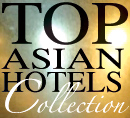


 Shoot-from-the-hip US policy has instantly altered global travel currents. As Asians rediscover their history and domestic travel surges, could rail travel become the next big thing? And what on earth is ‘hushpitality’?
Shoot-from-the-hip US policy has instantly altered global travel currents. As Asians rediscover their history and domestic travel surges, could rail travel become the next big thing? And what on earth is ‘hushpitality’?